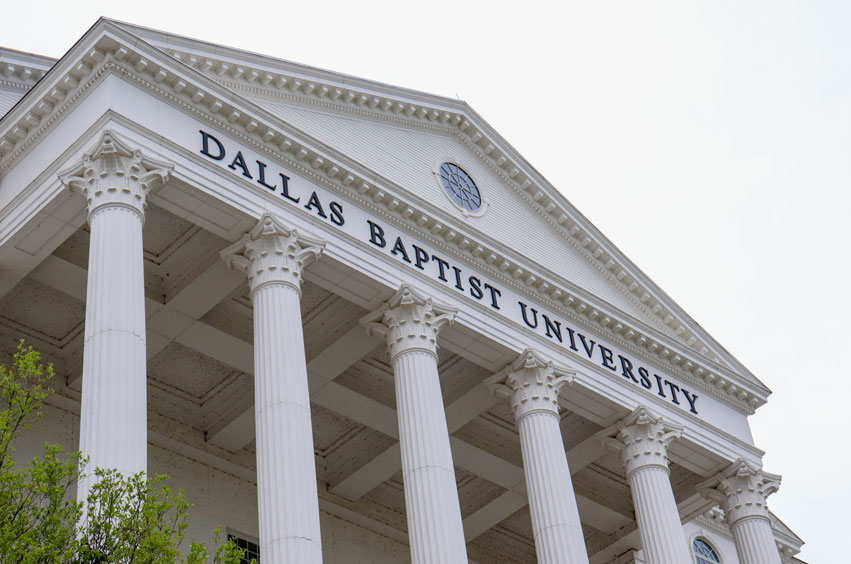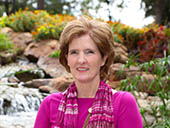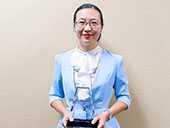Special Topics Courses Equip Students to Lead in Crises
This article is over six months old and may reference former titles for DBU faculty or staff, discontinued programs, or other details that have since changed. If you have any questions, please contact us at news@dbu.edu, or (214) 333-5172.

Around the globe, the year 2020 has been one for the books. The words crises, pandemic, shutdowns, frustration, unemployment, and more have been at the top of world-wide news. In response, DBU strove to provide relevant courses that both encouraged and empowered students to develop a godly and healthy approach towards the COVID-19 crisis and other future challenges. Three separate courses were offered and taught by DBU faculty during the May mini-mester, which were geared towards helping students exercise effective leadership, develop a biblical response, and differentiate between real and fake news especially in the midst of crises.
“Crisis Leadership in Turbulent Times” was taught by Dr. David Cook, Dean, Global Studies and Pre-Professional Programs Director. Dr. Cook shared that there was a great need to help prepare M.A. in Leadership students to lead well in crises like the current pandemic.
“With that goal in mind, we crafted this special course that was designed with a strong foundation for how to lead in crisis situations,” said Cook. “During the course, we heard from top leaders in business, healthcare, law enforcement, and higher education who shared their experiences of leading in crises. Likewise, we analyzed how to assess problems, build a crisis team, coordinate with external actors, make key decisions, and communicate with your constituents during a crisis. We looked at case studies of leaders during 9/11, Hurricane Katrina, the BP Oil Spill, and a wide variety of other crisis situations. As a capstone to this learning environment, we had the students put this knowledge into practice through engaging in two crisis simulations at the end of the semester. These were fast-paced environments where students were given a set of facts that continually changed and forced them to adapt their leadership throughout the simulated exercise. This allowed them to take what they learned in the classroom and apply it as if they were leaders in a real-life situation.”
While only 29% of the students said that they were “well prepared” or “very well prepared” to respond to a crisiscoming into the class, a full 100% of the students indicated that they felt this way in those same types of crises after completing the class.
One student stated his class experience in the following way: “I'm 52 years old and a senior executive at an investment management company. The crisis simulation was one of the most effective exercises I've experienced in the M.A.L. program, in terms of its real applicability to my leadership skills.”
Another student appreciated the “emphasis on our call as Christian leaders to lead in our spheres of influence through our biblical values especially during a crisis.” Yet another had this to say about the class: “I appreciated that it was a hands-on learning experience and felt like I took more away from this crisis simulation than I have from multiple choice finals in other classes.” All in all, the professors believe this class served a real need to prepare Christian leaders to lead well amid the current pandemic and other possible crises.
Another class, “Biblical Response to Crises,” was taught by Dr. Brent Thomason, Master of Arts in Global LeadershipProgram Director; Dr. Ryan Parnell, Assistant Professor of Psychology; and Dr. Wayne Davis, Dean of the College of Christian Faith.
“By May 2020, there was no space (emotional, physical, or spiritual) that COVID-19 had not already wreaked havoc,” said Dr. Thomason. “We found that students were struggling to respond to the situation in a spiritually and emotionally healthy way. So, we wanted to equip students in a cross-disciplinary way to respond Biblically to this particular crisis. The reality of the matter is, however, that our students might not ever see COVID-19 again in their lifetime. So, we expanded our gaze to focus on all sorts of crises that students will (unfortunately) face repeatedly. Consequently, we hoped to give students a spiritual foundation to understand the variety of healthy ways they can respond to crises from a biblical worldview. Since the lectures and discussions addressed various traumatic experiences, we think this course could be offered again in the future in this focused mini-term format.”
Kelsey Whaley, M.A. in Global Leadership student, reflected on her learning of the class material in the following way. “This class made an impact on my life as it taught me not only how I can respond to the crisis of a global pandemic in the lives of those I know and those I don't, but it also taught me how to respond to the smallest crisis in someone's life. I learned what God's Word says about crisis and how to apply that Scripture in my life and in the lives of those who are hurting. I learned that the truth really does penetrate how culture tells us to respond to a crisis.”
Lastly, Dr. Danny Rose, Associate Professor of Communication, and Scott Jeffries, Director of the Library and Professor of Library Science, taught a course entitled “Fake News & Real Crisis.” Both professors expressed a genuine concern for students and their lack of knowing the proper tools to find factual information. In the words of Jeffries, “A recent Stanford University study showed that 96% of high school students could not identify an article with obvious bias or a doctored video. Our students are tech savvy but lack information and media literacy. This course provided students with needed tools to evaluate the information that they consume daily. In the midst of a crisis, we see how costly it can be to not have accurate information and not know how to find it.”
Connor Torre shared his biggest take-aways from this timely course. “This class taught me to identify fake news through fact and source checking, along with identifying some different tactics as to how different news sources try to sway their audiences to believing what they have to say.”
Even though crises take us unexpectedly sometimes, it is important for Christians to be well-prepared to lead and ready to respond confidently in such stressful circumstances. To meet this need, DBU quickly responded to the current crisis by offering these academically rigorous and practically-minded courses to empower students with the knowledge and tools to be Christian servant leaders in the midst of crises.
Kathleen Sotomayor is a member of the University Communications team at Dallas Baptist University.








